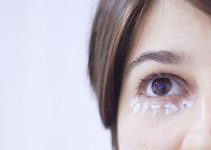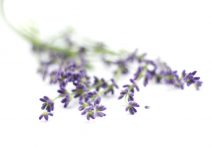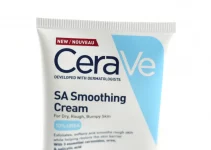When comparing argan oil vs jojoba oil, it’s not a question of how good they are for our skin or for our hair because we already know that they’re both amazing ingredients in the skincare and beauty industry. They’re used in a wide variety of skin care and hair care products.
More than a simple comparison stating that they’re wonderful essential oils for our face, body and hair, this article is about establishing what each of these two oils can do for our skin and hair.
Thus, the main purpose of an argan oil vs jojoba oil comparison is to understand the skin and hair benefits of these two.
I have been using essential oils for more than 10 years, whether I’m using them on my face, body or for hair care. I feel that they’re increasingly becoming more and more appreciated because we all want to achieve a more natural and healthy beauty routine, whether we’re talking about our body, face or hair.
Speaking of achieving a more natural look, check out my article discussing alternatives to mascara.
Contents
Argan Oil vs Jojoba Oil: Which is the Best?
The second purpose of my argan oil vs jojoba oil comparison is to help you understand which of these will bring the most benefits to you.
Of course, your choice of which is the best essential oil for your face, body or hair will depend on your needs and what you’re trying to achieve by incorporating either of these two or both in your beauty routine.
You can absolutely pick both and use them for different purposes. I’ll leave that final choice to you but I hope you’ll find these two essential oils just as fascinating as I do.
My recommendation is simple: use both as often as you can.
However, if you’re targeting certain skin conditions like acne, eczema, psoriasis and rosacea, your first choice should be jojoba oil. It’s the best of the two for these types of conditions.
If you want to prevent and get rid of fine lines and wrinkles, you can use either.
For shiny, strong hair, either of them work. But if you’re concerned about dandruff, start first with jojoba.
If you want a massage oil, either argan or jojoba will work wonderfully but I have a personal inclination for jojoba when it comes to a full body massage.
Neither is the best because they’re both wonderful. Just continue reading so that you can discover what benefits each of them has.
Argan Oil vs Jojoba Oil: Skin Benefits
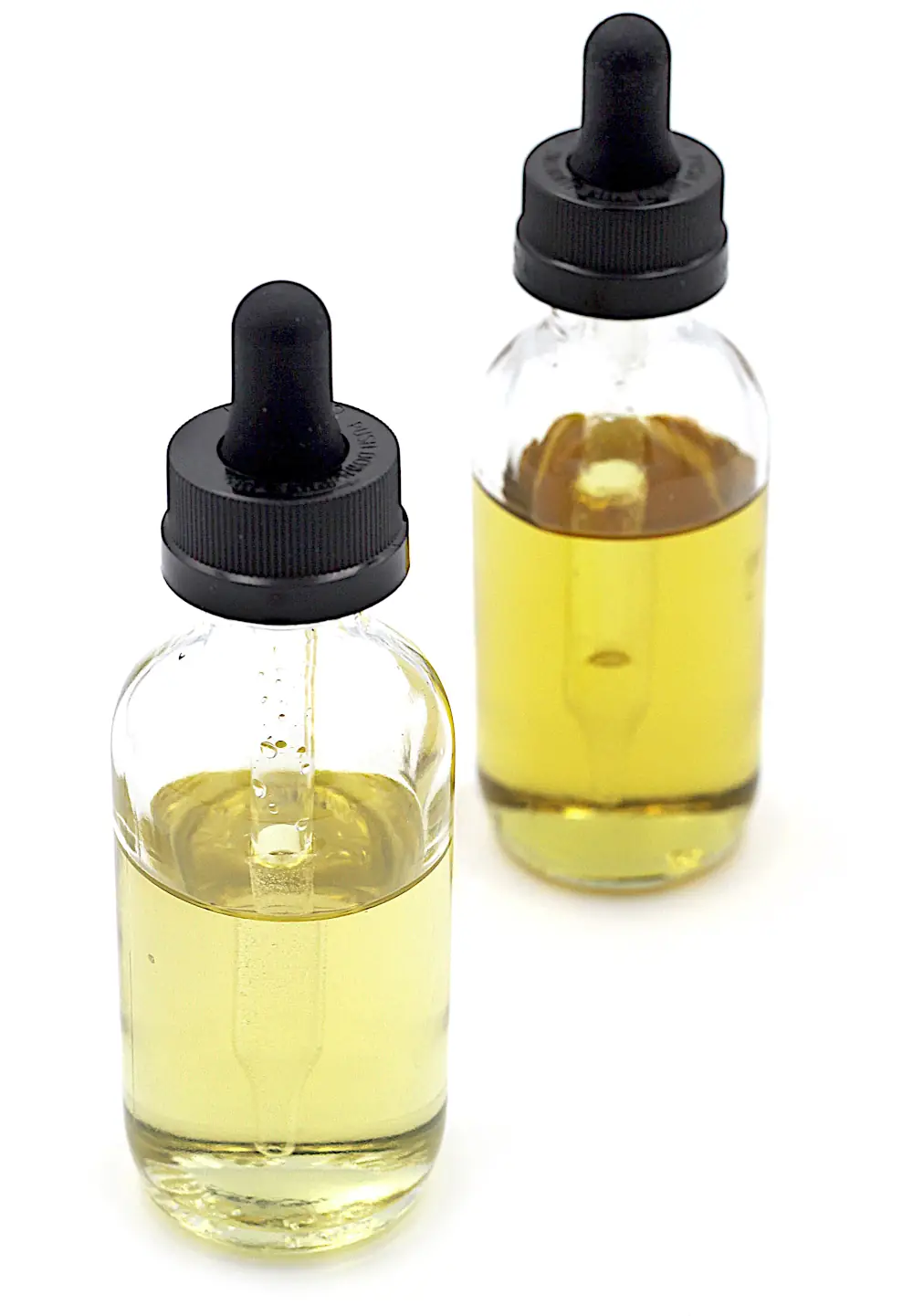
Let’s see which of these two might be working for us based on what skin care benefits they provide.
Under the umbrella of skin benefits we’ll talk about what jojoba and argan oils can do for our face and body.
Argan Oil Skin Benefits
By now, pretty much everyone associates argan oil with Morocco. You might also be aware that it’s called liquid gold.
In Moroccan folklore, the argan tree is also known by another name: the Tree of Life. According to the legend, in a village experiencing severe poverty and starvation, the men would congregate in prayer, asking for salvation from the difficult times. One night, a woman joined them in their prayers, after which the argan tree was born.
The tree was used for a variety of purposes: the wood as fuel, the levees for feeding the cattle, and the oil from the fruits bore the gift of beauty.
The traditional method of extracting the oil is fascinating: women gather the nuts of the argan fruit, roast them and then grind them into a thick brown paste, which is then mixed with water and filtered. The liquid obtained is the color of gold, hence the name liquid gold.
On the industrial scale, cold pressing is used for extracting the oil. The same goes for jojoba oil and many other essential oils that we’re using for our beauty routine and for cooking.
Based on how the kernels are prepared, there are two types of argan oil: food or cosmetic grade. The cosmetic one is prepared from unroasted kernels, while the food type is achieved by pressing the kernels roasted for a few minutes.
Argan Oil Composition
In order to understand the benefits argan oil has for our face and body, we should know a bit about its composition and how these elements work.
Argan oil contains:
- unsaturated fatty acids – linoleic acid (omega 6) and oleic acid
- sterols (polysterols)
- tocopherols (vitamin E)
- polyphenols
- coenzyme Q10
- melatonin
Vitamin E is a famous antioxidant that can protect our skin from sun damage and pollution. Argan oil is very rich in tocopherols.
Fatty acids are crucial for skin function and appearance.
Sterols enable the skin to retain moisture and strengthen the skin barrier due to their anti-inflammatory and antipruritic actions.
Polyphenols protect from sun damage, reverse signs of aging like sun spots, fine lines, and wrinkles.
Coenzyme Q10 is an antioxidant that protects the skin from environmental damage, helps the skin retain moisture, and energizes the skin, reducing dullness.
Healthy, hydrated, younger-looking skin
Let’s talk about the fact that it contains unsaturated fatty acids. That makes argan a fantastic oil for so many purposes.
Just consider that essential fatty acids are the building blocks of healthy cell membranes.
These fats help produce the skin’s natural oil barrier. They’re also critical for a younger looking skin. They contribute to having a hydrated and plump-looking skin.
Linoleic acid provides moisture and plumpness. It also fortifies the skin’s barrier. A healthy skin barrier is crucial if we want our skin protected from UV rays and pollutants.
Oleic acid has an anti-inflammatory role that can stimulate wound healing. It also helps calm, balance and help repair skin. It’s a good ingredient for those suffering from eczema, rosacea and psoriasis.
Overall, if we want a strong, healthy skin that looks young, hydrated and fresh, we need fatty acids and argan oil can provide them.
Tocopherols (vitamin E) skin benefits
I find that by now pretty much everyone knows just how important vitamin E is for our skin. It’s an already famous antioxidant with anti-inflammatory benefits.
Vitamin E is such an incredible ingredient because, as an antioxidant, it can provide our skin with extra protection against acute UVB damage.
It protects against cell mutation caused by the sun and pollution.
Don’t confuse all those protection benefits with sunscreen action. We still need to use sunscreen daily. It’s just that vitamin E is something extra, all antioxidants are.
It also has anti-aging effects. It improves elasticity. Tocopherols can also work for reversing signs of aging due to the fact that it’s an anti-inflammatory powerhouse.
Tocopherols are an essential ingredient with the following benefits: sun damage protection, protection against pollution, anti-inflammatory benefits, hydrating agent, anti-aging ingredient.
Main Benefits of Argan Oil for Face
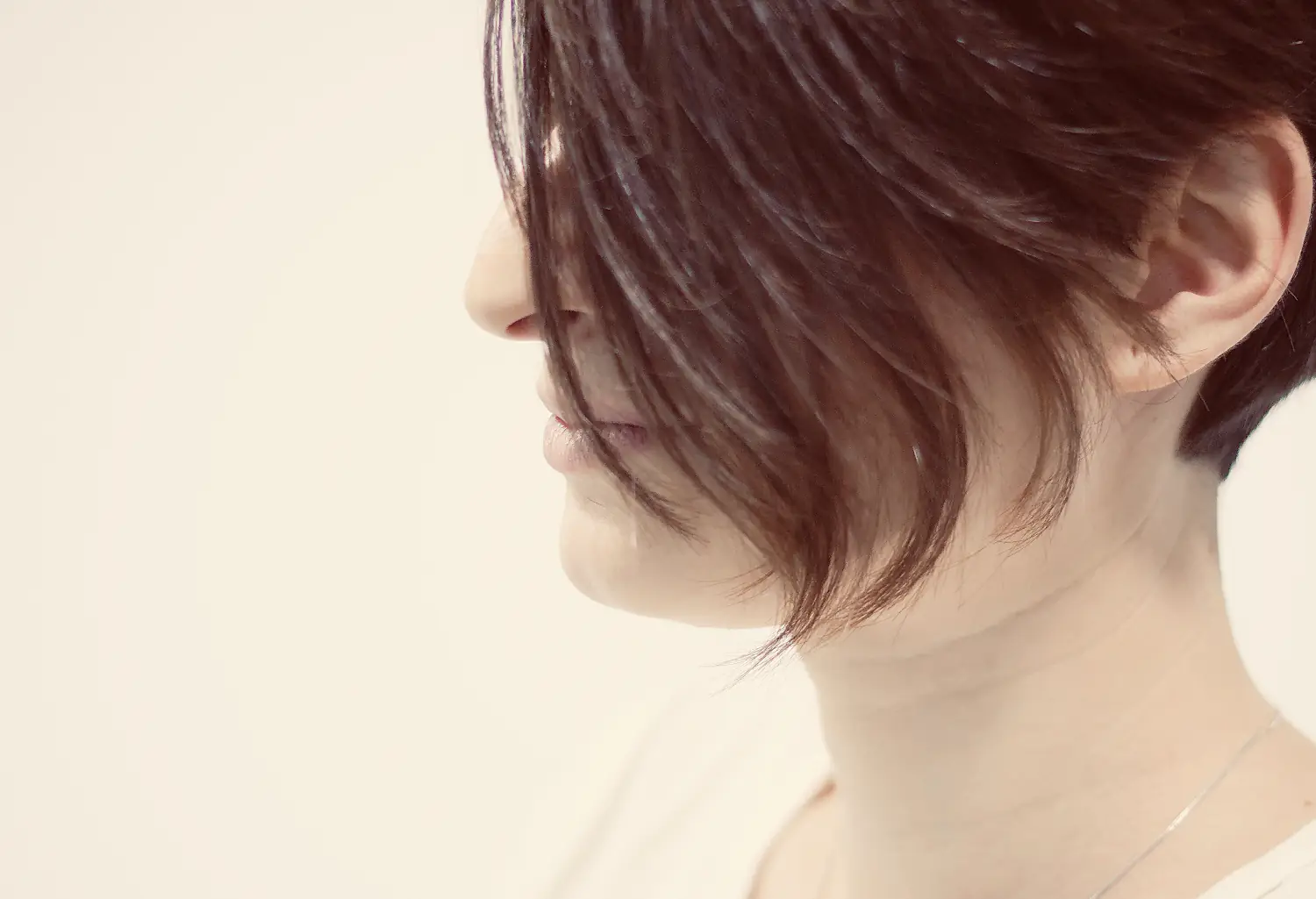
Let’s do a sum up of what we’ve learned that are the argan oil face benefits. Obviously, all these benefits also extend to our body. The focus is on face benefits because most of us have more needs for our facial skin while the rest of our body doesn’t present so many problems.
The argan oil for face benefits are:
- moisturizes the skin – it can benefit dry skin by helping the skin retain moisture
- sun damage protection, UV protection
- protection against environmental damage
- strengthens the skin barrier
- anti-inflammatory benefits for a number of skin conditions (eczema, rosacea and psoriasis)
- helps reduce signs of aging
You can also use it to minimize stretch marks because vitamin E is used to minimize the appearance of stretch marks.
However, there are no studies to demonstrate the effectiveness of argan oil against stretch marks. For stretch marks, I actually recommend products that contain tretinoin.
Last but not least, a study concluded that argan oil can help burns heal more quickly. It can represent a potential therapeutic option in the future treatment of burn injuries.
How to use argan oil on face and body
It can be applied directly to the skin and hair. Or it can be used as an ingredient in other skin and hair products.
If you’re buying a hydrating moisturizer, it’s quite often that you’ll see argan oil among the ingredients.
You can buy it as pure argan oil and use it all over: face, body, hair. I definitely recommend buying pure argan oil, especially for body and hair.
Or you can buy products that include argan oil among the ingredients.
For example, there are hydrating oils that will contain a mix of essential oils and other natural extracts that will promise to reduce fine lines and increase suppleness.
Oil boosters are another product for our face that can revitalize a dull, flaky complexion.
Another combination that you can buy is argan oil + hemp seed oil. Argan is used for boosting hydration and elasticity thanks to its three fatty acids and high concentration of vitamin E. Hemp seed oil is used for its content of amino acids. This kind of combination is used as an organic age-defying blend for stronger, glowier, bouncier skin.
We can also do an oil cleanse. Argan oil can be used as a cleansing oil because it doesn’t clog pores. At the same time, an oil cleanser enables us to remove all the unwanted stuff from our faces without disrupting our skin’s microbiome.
Eye creams with argan oil can restore hydration, nourish the skin, make our eyes look refreshed, and prevent fine lines and wrinkles.
Jojoba Oil Skin Benefits
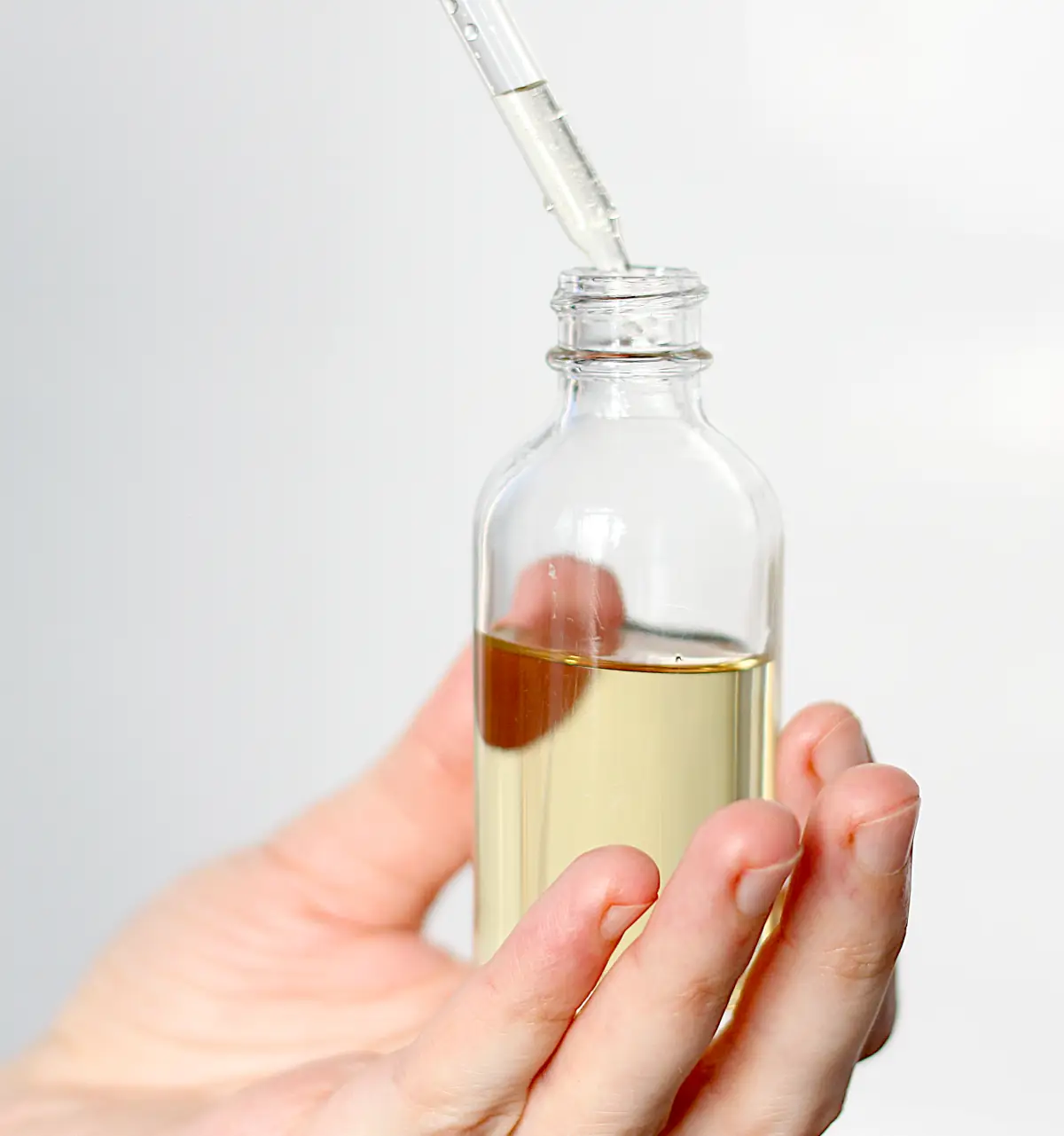
Jojoba oil is extracted by cold pressing jojoba seeds. The seeds grow in the jojoba tree Simmondsia Chinesis. It might sound exotic, but this tree is actually native to Southern and Central California. It can be found in the Peninsular Range and Sonoran Desert regions.
The tree is also known by other names: goat nut, deer nut, pignut, wild hazel, gray box bush, coffeeberry, quinine nut.
However, chemically speaking, jojoba oil is not actually an oil but a wax ester. Still, since we’re here to talk about argan oil vs jojoba oil in terms of what these two can do for our face, body and hair, we’re not very interested in the chemical-correct terms.
The fact that it’s a wax ester is what will interest us when it comes to its benefits for skin and hair.
Jojoba Oil Composition
If we want to understand what this oil can do for our face, body and hair, we need to know which components make it so helpful and what those individual components do for our skin and hair.
The composition for jojoba oil is:
- wax esters
- fatty acids
- alcohols
- hydrocarbons
- sterols
- vitamins : vitamin D, vitamin A, and vitamin E
- flavonoids
Wax esters benefits for skin
When we’re talking about jojoba oil, we must first talk about what these wax esters do for our skin. Given that jojoba is composed of almost 98% pure waxes, these are the ingredients that should receive our full focus.
The unique chemical composition of the wax esters is the main drive for all the benefits that jojoba oil can have for our face, body, and hair.
Jojoba esters are the key to all that is so wonderful about this absolutely impressive oil.
If you have the time, I recommend reading this study on jojoba oil and all the wonderful ways it can help our skin, face and body.
To sum up what that study reveals, jojoba esters have been used in folklore to treat various skin and scalp disorders.
Jojoba oil has a wide range of pharmacological applications: anti-acne, anti psoriasis, antioxidant, anti-inflammatory, antifungal, antimicrobial. That’s what makes this oil so great.
Our skin recognizes jojoba esters as its own, which means that it allows the oil to penetrate deeper into the skin, where it nourishes and regenerates skin cells.
That’s why it’s such an effective emollient and can reduce dryness more effectively than other essential oils.
Vitamin A, vitamin D and vitamin E benefits for skin
What most of us know about vitamin D is that when our skin is exposed to sunlight, it makes vitamin D from cholesterol. In terms of skin benefits, vitamin D plays an integral role in rejuvenation and skin protection. It contributes to skin cell growth, repair, and metabolism.
If you’ve heard of retinol or tretinoin, you’ve heard of vitamin A. Vitamin A is an absolutely fascinating ingredient because it’s an antioxidant. It prevents sun damage, prevents the appearance of wrinkles, reduces hyperpigmentation, speeds up cell turnover, increases collagen production, brightens up the skin, fights acne, makes pores look smaller, etc.
I’ve already talked about how vitamin E benefits the skin, since it’s a major component of argan oil. To sum it up: it hydrates the skin, strengthens the skin, has anti-inflammatory benefits, and protects against sun damage and pollutants.
Benefits of Jojoba Oil for Face
Now that we’ve established the composition for jojoba oil, let’s sum up which are the main jojoba oil for face benefits:
- emollient agent – it provides smoothness and softness to the skin
- anti-inflammatory benefits for a number of skin conditions (eczema, rosacea and psoriasis)
- antibacterial and antifungal properties – another reason for being used against conditions like eczema, rosacea and psoriasis
- topical application may help with dryness, itching, and flaking
- antioxidant activity
- anti-acne and anti-psoriasis activity because it has anti-inflammatory, antibacterial and antifungal properties
- nourishes and heals dry lips
- boosts skin’s glow, diminishes dullness
- it can prevent and fade fine lines and wrinkles
It contains antioxidants (vitamin A and E), which help prevent sun damage and the effect of pollutants, hydrate the skin, fight against acne, prevent the appearance of fine lines and wrinkles, etc.
For those suffering from skin conditions like acne, eczema, rosacea and psoriasis, I recommend first trying jojoba oil and then moving on to argan oil, if no results are forthcoming.
How to use jojoba oil on face and body
One thing you can do is to buy pure jojoba oil and apply it directly on the face, body and hair. I recommend getting the organic kind if you can. It’s good to think about using organic products for our skin and hair as often as we can, if we can afford it.
Once you gently rub the oil into the skin, you will feel your skin getting instantly hydrated. However, it’s also lighter-feeling so it provides an overall awesome experience.
It’s certainly a wonderful idea to use it for full body massages, too.
Both argan oil and jojoba oil can be used instead of a regular cleanser and for makeup removal. We’ll get rid of all the makeup and whatever dirt our face has gathered, without disrupting our skin’s microbiome.
Primer oil is another product that you can get. You can combine a few drops of your liquid foundation with a primer oil for a subtle glow.
Beauty oils that comprise a variety of essential oils are amazing. They target various skin needs, like hydration, strong skin barrier, natural radiance, preventing fine lines, etc.
You’ll also find it as an ingredient in moisturizers from a variety of brands.
Cleansers and gentle facial scrubs can also contain jojoba beads.
Lip masks with jojoba oil is another product that we should be aware of.
You’ll also find it used as an ingredient in cuticle oil and lipsticks. Jojoba is pretty well-known as a softener for rough cuticles.
Do They Clog Pores?
Argan oil has a rating of 0 on the non-comedogenic scale. It’s impressive.
Jojoba oil has a rating of 2 on the non-comedogenic scale. It’s really, really good.
Argan oil is actually famous for being a non-comedogenic essential oil. It means that it doesn’t clog pores. Since its rating is 0, it means that it’s highly unlikely that it will clog pores.
As we know, clogged pores lead to breakouts so no one, absolutely no one, wants to use products that might clog pores. That’s especially true for people with oily, combination or acne-prone skin.
That’s fantastic to know because it means that argan oil can be used on all skin types. As we saw, thanks to this quality, we can also use it as a cleaning oil instead of our usual cleanser. Isn’t it fascinating?
Jojoba oil doesn’t clog pores either. It’s another non-comedogenic essential oil that can be used by all skin types.
It might have a slightly higher rating but it can still be used by all skin types. It’s great for oily skin, combination skin, and acne-prone skin. Plus dry and sensitive skin types.
Should you apply oil before or after moisturizer?
In our usual skincare routine, we’re used to moisturizer/sunscreen/night cream being the last step of our skincare routine.
However, what if we add essential oils to our skincare routine, like we talked about here in this argan oil vs jojoba oil comparison?
In that case, you need to add the oil on top of the moisturizer. An oil is able to penetrate the moisturizer but a moisturizer can’t penetrate the oil.
Thus, if you feel the need for extra moisture, use a couple of drops of oil after applying your moisturizing cream. I wrote an entire article on how to use facial oil, you can also check that out.
One to three drops of oil are enough for the entire face. Don’t use much more than that.
Argan Oil vs Jojoba Oil: Hair Benefits
We saw just how good these oils can be for our face and body, our skin from head to toe, but we should also know just how amazing both jojoba and argan oil can be for our hair.
You’re going to love this part just as much as you did discovering all their skin benefits. It’s time to turn our focus to hair benefits.
Argan Oil Benefits for Hair
The easiest way to use argan oil for hair is to massage 8-10 drops into our hair and scalp. If you feel that it’s too little, add a few more drops and continue massaging.
If you want to do a rigorous job of incorporating the oil into your strands and scalp, continue massaging for about 10 minutes, from roots to ends and back up again.
Wrap your hair in a hair wrap or a towel and leave it like that overnight. It’s a simple but very effective hair mask that you can do once or twice per week.
Wash your hair in the morning and admire your beautiful strands in the mirror. Your day is off to a fabulous start.
Another way to use argan oil is to apply it to wet hair after washing it. Just use a few drops, massage them into your hair and then you can blow dry it and style it as you usually do. Used in this manner, you’ll benefit from its detangling and heat-protection benefits.
The benefits of argan oil for hair are:
- moisturizes hair and scalp
- protects our hair from everyday damage
- reduces breakage and split ends
- keeping an overall healthy scalp, which can prevents flakes and itchiness
- softens the hair
- detangles it
- smooths frizz
- it can penetrate the hair cuticles more effectively because it has smaller molecules than most other hair oils
If you feel that your hair is damaged from everyday pollution, chemical treatments, hot tools, and whatever else we put it through, then I recommend doing an overnight mask of argan oil as soon as you can.
As you saw, you only need to massage it into your hair and scalp and leave it overnight.
I definitely recommend using argan oil on your hair if you want to restore it to a healthy state because it contains a high percentage of vitamin E that can help reduce breakage and split ends.
It can also be used as a heat protectant. If you plan on using hot tools on your hair, just massage a few drops of argan oil on freshly washed hair before using the hot tools on it.
Jojoba Oil for Hair
We can massage pure jojoba oil in our hair directly like that. Frankly, that’s the easiest way to use it and you’ll love the whole experience.
You can massage the oil into freshly washed hair and then leave it overnight to do its work. It’s an overnight hair mask that requires little effort.
You can also add it to conditioners.
The benefits of jojoba oil for hair are:
- moisturizes hair – just as it moisturizes our face and body, it’s also a very good moisturizer for our hair thanks to the esters, fatty acids, and vitamins that it contains
- protecting against split ends – it can help heal broken/split ends just as it helps heal our skin
- adding shine
- reducing grease
- men can also use it for their beards if they want to maintain a silky, luxurious beard, it’s a nice tamer
Dandruff
Just as it can help with flaky, itchy, very dry skin, jojoba oil can also help reduce and calm flakes on our scalp.
It’s a good product to try for dandruff because our scalp absorbs it deeply. Then, it can do its work as an emollient, anti-inflammatory, antifungal, and antibacterial agent.
I can’t say that it will 100% make your dandruff go away but it can be a very good option to use if you feel that you’ve reached the end of the road of effective products.
Overall, it’s a natural solution that I would recommend.
Which is the Best for Hair Growth?
As we saw, both jojoba and argan oil have wonderful hair benefits. You can’t actually go wrong with either for beautiful, shiny, healthy, strong hair.
However, if we talk about their benefits strictly for hair growth, I would say that neither is the winner of this argan oil vs jojoba oil comparison.
Both essential oils can promote an overall healthy hair and moisturize our scalp. They’re also allies in our fight against dandruff. That’s totally true.
However, there is no study that demonstrates the therapeutic effects of jojoba oil in hair loss.
If you are interested in a study that focuses on an essential oil and its positive influence on hair growth, I recommend checking out this one. That study actually focuses on peppermint oil and how it promotes hair growth without toxic signs.
Thus, as much as I love both argan and jojoba, I would actually recommend trying peppermint oil for hair growth. Of course, you’ll need to dive deeper into how to use it and other things like that.
When it comes to peppermint oil, it was established that menthol, the principal ingredient, is primarily responsible for its beneficial effects. on hair growth Neither argan or jojoba contain menthol.
When comparing hair growth effects of peppermint oil vs the effects of jojoba oil and minoxidil on hair growth, it turned out that at week 4 of the experiment 3% peppermint oil showed hair growth about 92%, while minoxidil scored about 55%.
In the same study, jojoba oil didn’t score any significant results.
I guess we found the weak point in our argan oil vs jojoba oil comparison but, other than not significant results for hair growth, both these oils are fantastic for our face, body and hair.

